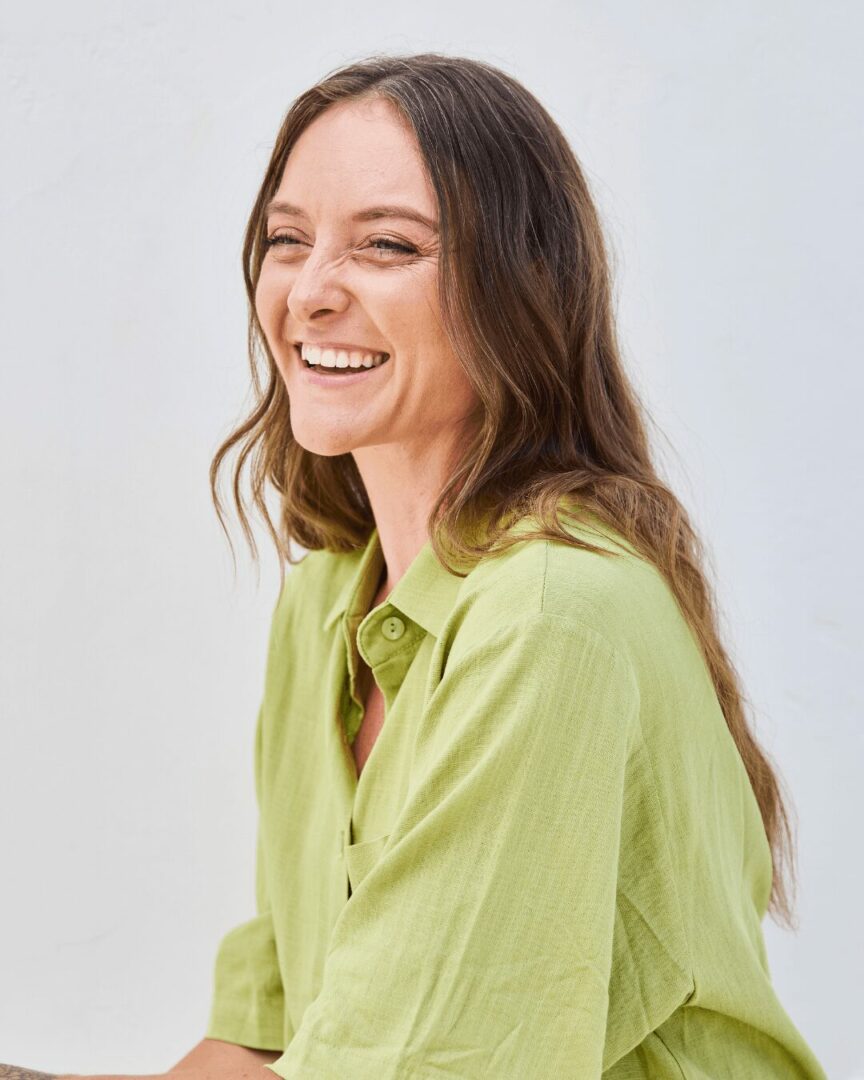We were lucky to catch up with Dani Schiess recently and have shared our conversation below.
How did you find your purpose?
I found my purpose, firstly, by feeling unfulfilled. That was my indicator that I wanted more and wasn’t living in alignment with my values (which I didn’t even know what those were at the time). I decided to question my unfulfillment and get curious about it. What was allowing me to feel unfulfilled? What did fulfillment look like for me? How would I know I was living a fulfilling life? I realized that living with purpose would allow me to feel fulfilled and thus began my search for my purpose. I started by outlining things I like and don’t like about previous jobs I’ve held. I started within the realm of my jobs because I enjoy “working” per se, just not in the ways I was used to. I.e., working for someone else to build their dreams, working 40 hours a week, needing to request time off with limited PTO, etc. I decided to look at my roles over the past few years and dissect what I did and did not enjoy. I was looking to find a common theme. What I found is that I really enjoyed working with people on my team to develop their professional and personal skills, and I don’t enjoy working for someone. As I began finding common themes, I dissected what I liked and disliked outside of work. I did this because I don’t believe in work/life balance. I believe that when my work is aligned with my values, I can operate as a whole person, not “Work Dani” and “Life Dani.” This means that when I’m doing things I genuinely enjoy in my life, reading, meditating, going for walks, having introspective talks, etc., they also enhance who I am on a professional level. Once I became clear on what I liked and disliked on a professional and personal level, I began my search for a role that would highlight what brings me joy and fulfillment; I quickly found that role – Executive Coaching. I think in most cases, each of us knows what our dream role is. Sometimes we don’t have the verbiage for it (I certainly didn’t; I didn’t even know what an Executive Coach was), or we don’t have the courage to name what our dream role is because it feels “unrealistic,” or we’re too burnt out to even begin the search of what our dream role is. All of these are extremely valid reasons and it reminds me of the saying, “Choose your hard.” What’s more difficult? Living day after day unfulfilled? Or, beginning the search for what brings us purpose in this big, beautiful life? For me, I chose the “hard” of finding my purpose. And as I said, the search itself was quick because the data from all my self-reflection was there, in plain sight. I like working with people, I enjoy being of service on other’s quest to better their lives, I prefer working from home/making my own hours, I like challenging my preconceived beliefs, I enjoy working on myself and growing/evolving as a human, and I believe strongly that people within organizations deserve to have the help and support they need to better themselves, their lives, and their work environment; AKA – Executive Coaching.
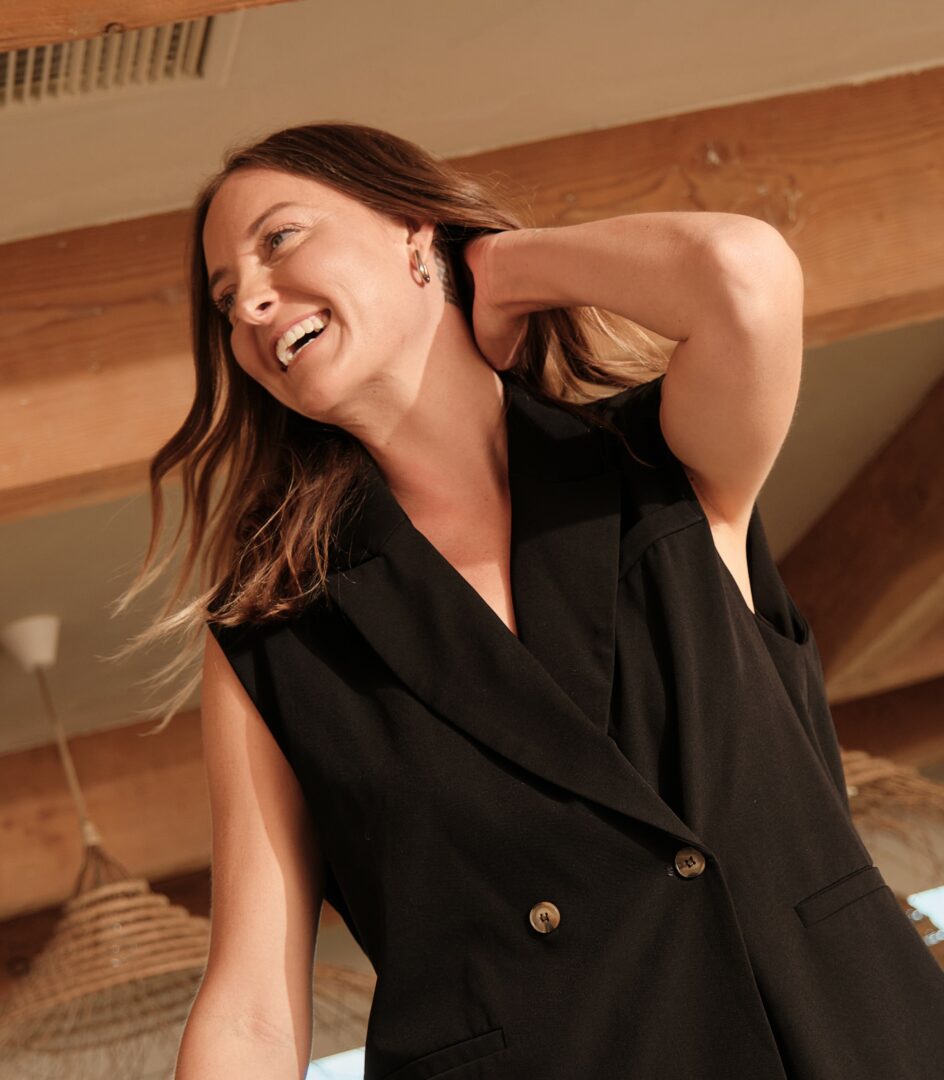
The next part of the interview is where we’d love to learn more about you, your story and what you are focused on professionally – whether it’s a business, nonprofit, artistic career etc. Please tell our readers about what you do, what you feel is most exciting or special about it, as well as anything else you’d like folks to know about your brand/art/etc. If relevant, please also tell our readers about anything new (events, product/service launches, expansion, etc)
I’m an Executive Coach specializing in coaching women in leadership positions who want to lead with purpose, elevate their skills, and create lasting impact for their teams. I also offer a month-long mentorship program for women looking to find their life’s purpose and live in alignment with their values. What I love about the work that I do is how transformative it is. Within coaching sessions, women come to me looking to step into their power, find focus and clarity, unlock their intuitive strength, and cultivate a workplace environment that leaves a meaningful, lasting legacy. With my mentorship program, the women who participate often feel burnt out, overwhelmed, uncertain, and discontent. They leave feeling clear, motivated, certain, energized, and empowered. I got into this line of work because I’ve seen how powerful it’s been in my life. I got into Executive Coaching specifically because I’ve worked for start-ups, established organizations, agencies, and non-profits, and what I’ve realized is that ineffective leadership knows no bounds; it will be the thing to derail and destroy a business that would otherwise thrive. I help female-owned businesses reassess their leadership in order to achieve the initial dream they had when they first started their business endeavor, and provide a safe, impactful, and viable space for their employees to raise the health and conduciveness of the company culture as a whole. I started my mentorship program for women because I’ve seen what women can do when they’re given a chance to dive deep within their own minds, hearts, and intuitions and the absolute magic and transformation that comes from that. I’ve often found that women have incredible gifts but are completely inundated with societal norms/expectations that they aren’t given the opportunity to flourish. It all starts with slowing down, getting intentional, and getting curious about what’s on our hearts and minds. But this can feel overwhelming on our own. This is why I offer coaching and mentorship; these techniques empower you from within on a fundamental level while still providing external support along the way.
Three Most Important Qualities, Skills and/or Areas of Knowledge
Three skills that were most impactful on my journey were asking questions/being curious, getting connected to who I am on a deep level, and looking for answers internally.
Asking questions/being curious: I remember when I was working at a larger company, we had access to a company-wide internal Slack channel. I thought I wanted to move departments within the company, but I wasn’t sure. It dawned on me to slack someone in that department and ask if they would hop on a call to chat with me. They were happy to do so and through that conversation, I realized I didn’t want to move departments, I wanted to switch careers. More often than not I find that people (myself included) don’t utilize the simple yet impactful opportunity to ask questions as often as we can.
As far as curiosity goes, I use this as a way to challenge old notions or beliefs I may have, both for my growth and for fun. For example, I tend to go on morning walks (especially to avoid the heat). But in the winter, I realized I was still going for morning walks even though there wasn’t a need for it. I decided to start going for evening walks just to see what that yielded for me. It turns out, I really enjoy evening walks. I see more neighbors, my partner can typically join me, and it feels like a great way to end the day. But I wouldn’t have this insight if I didn’t challenge when I go for walks. It’s a small shift (evening walk vs. morning walk) but it keeps me curious about preconceived notions that may be keeping me “small” or “stuck.” These small shifts have a major impact – bringing awareness to my life when it can be rather easy to go on autopilot. Asking questions and staying curious have continuously helped me uncover truths and explore who I am at every stage of life. As you read this, take a moment to think about five people you could reach out to and ask a question. It doesn’t even have to be someone you know. I once reached out to the conductor of a newsletter I like and asked them a question via email. They responded. And that’s the beauty of asking questions, you either receive an answer, or you don’t hear back. The stakes aren’t high, but the reward can be life-changing.
Connecting to myself on a deeper level: I’d say this is the most impactful skill I’ve experienced in my life. If I’m not connected to myself I have no internal compass. In a world that’s full of external advice, opinions, fabricated facts, and decision fatigue, life and making choices can become very confusing very quickly. On the other hand, if I’ve taken the time to get to know who I am, what my values are, and what I do and don’t stand for (with the flexibility and grace of knowing that I’m multifaceted and ever-changing) I can lead a life of conviction, alignment, and purpose. Connecting with ourselves on a deeper level is truly a learned skill; it doesn’t just happen. This is why I’m such an advocate for coaching. Journaling, meditation, breathwork, and walks are all things I believe can help someone connect to themselves, but even as someone who does all the above, there is nothing that compares to having someone hold space for me, asking questions that expand my thoughts, and reflect what I’m saying back to me; it’s like exploring a cave in the dark only to have someone hand you a flashlight. I’ve been exploring who I am for the last twelve years and I still uncover truths and insights during coaching sessions. I think I always will because what’s true for me now may not be true for me in the near/distant future. Our lives are constantly evolving and the one thing that keeps me grounded and connected to myself is the lifelong work of getting to know who I am. Some journal prompts I use to help me connect to myself are: What do I need today? What can I let go of? What’s on my heart? What’s on my mind? How do I want this day/week/month to feel?
Looking for answers internally: This skill comes very intentionally after “connecting to ourselves on a deeper level.” We can’t look for answers internally without first getting to know who we are. Something I often hear in coaching sessions is that people experience difficulty trusting themselves. Imagine a stranger on the internet commenting on what you should do with your life. You’d probably dismiss their advice or take it with a grain of salt. The same thing happens when we try to take our own advice without getting to know who we are first. If we don’t take the time to know who we are, when we try to seek answers from within, it feels like trying to trust a stranger. Now think about someone you trust, someone you’ve known for a long time, someone you spend a lot of time with. If they gave you advice, would you take it to heart? Most likely, yes. The same goes for our relationship with ourselves. When we’ve taken time to know ourselves, it unlocks our ability to look for answers within. Because now, we know ourselves, we trust ourselves, and we’ve seen what we can do. This work is so important to me because, as I mentioned previously, there are a lot of external opinions, advice, and options floating around. If I’m constantly seeking external advice, I’m going to end up living a life that isn’t remotely close to being representative of who I am. The next time you’re tempted to ask a friend, partner, colleague, or Google for advice on something, give yourself the opportunity first. For example, maybe you’re not sure if you want to take on a project at work. While it may be tempting/habitual to ask someone externally, start with yourself. Ask yourself what it would be like to take on the project. If you took on the project, would you respect that decision? What would it feel like to not take on the project? The beauty of asking yourself a question first is that you give yourself an opportunity to strengthen your intuition, and you can always ask someone after you’ve asked yourself.
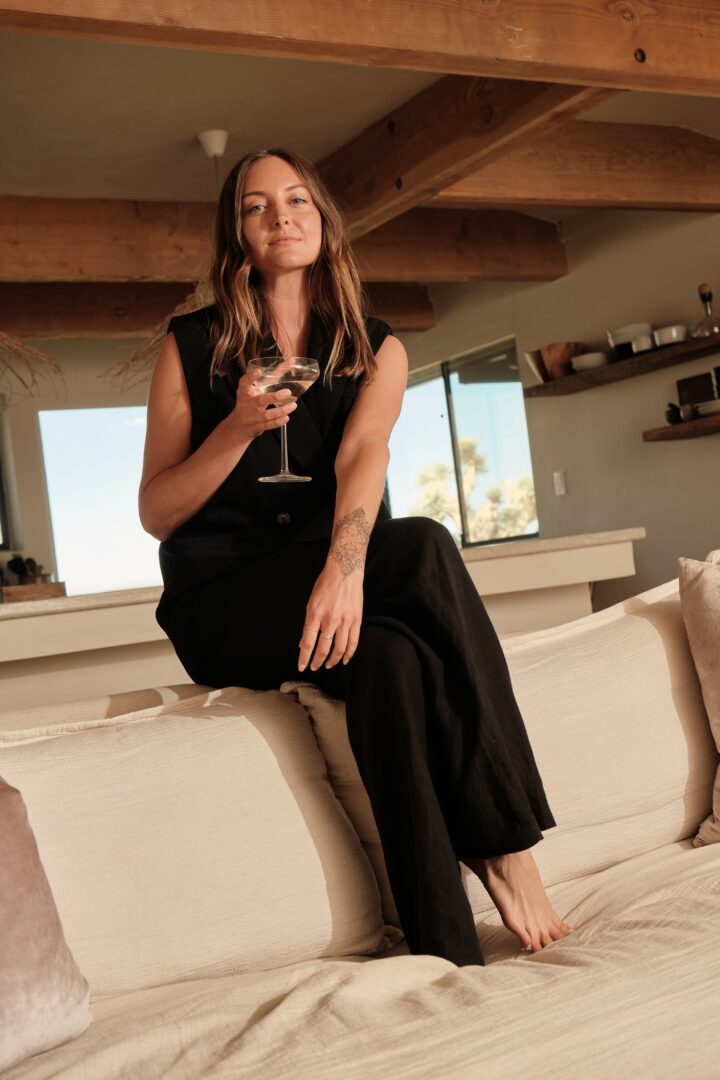
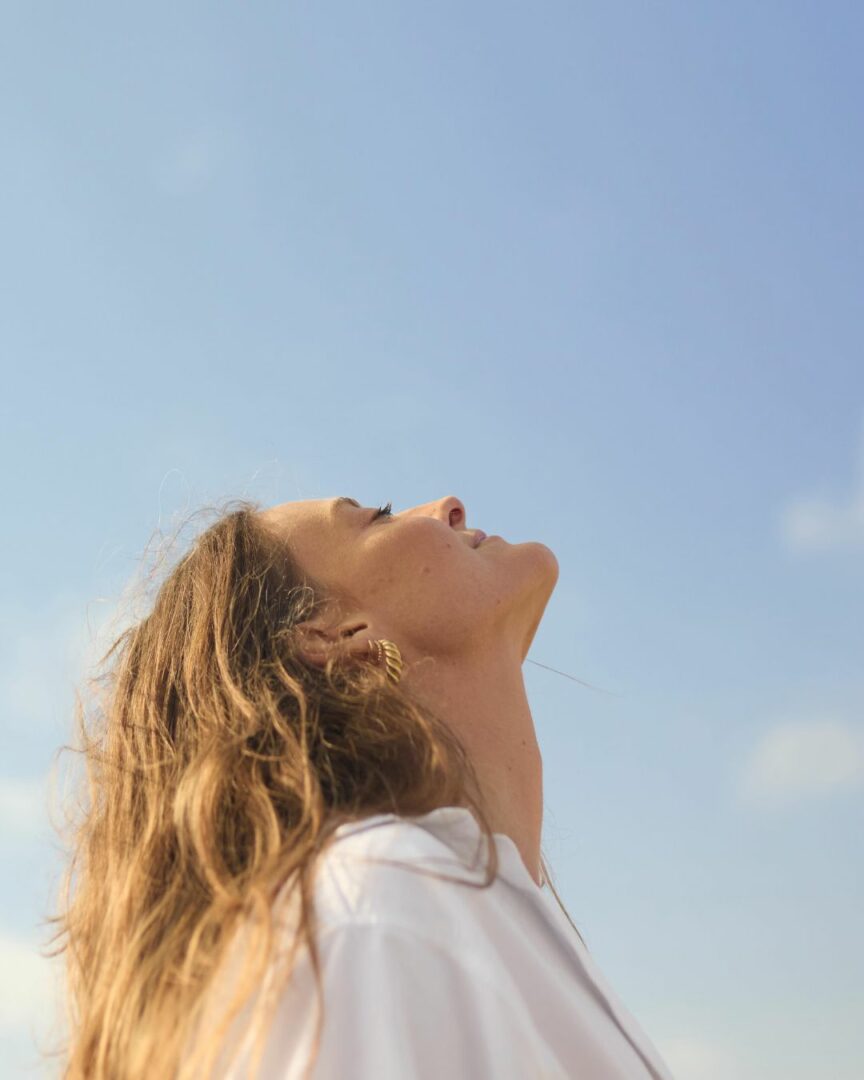
Are you looking for folks to partner or collaborate with? If so, describe the sorts of folks you are looking to collaborate with and how they can connect with you if they are reading this and want to collaborate.
When I entered my 36th year of age, I could feel that I was entering a new version of myself, one that is ready to grow exponentially, weed out what doesn’t get me closer to my goals, and hold myself accountable as I take steps toward the highest version of myself. As I do so, I’m looking to build a very close-knit circle of women who feel aligned with this. Ideally, a circle of women who are business owners and looking to hold themselves and those within our circle accountable. It’s a circle that challenges one another, pushes each other, supports one another, and shows up for one another. Think of it like a monthly book club but for personal growth. This definition of big friendship by Aminatou Sow and Ann Friedman summarizes the sentiment well: “Big friendship is a bond of great strength, force, and significance that transcends life phases, geography, and emotional shifts. It is large in dimension affecting most aspects of each person’s life. It is full of meaning and resonance. A big friendship is reciprocal with both parties feeling worthy of each other and willing to give of themselves in generous ways. A big friendship is active, hearty, and almost always mature. Its advanced age commands respect and predicts its ability to last far into the future.” If this resonates with you, you can email me at [email protected]. I would love to connect!
Contact Info:
- Website: https://www.intuitivecoaching.space/
- Instagram: @hello_tucson
- Linkedin: https://www.linkedin.com/in/dani-schiess/
- Youtube: https://www.youtube.com/@hello_tucson
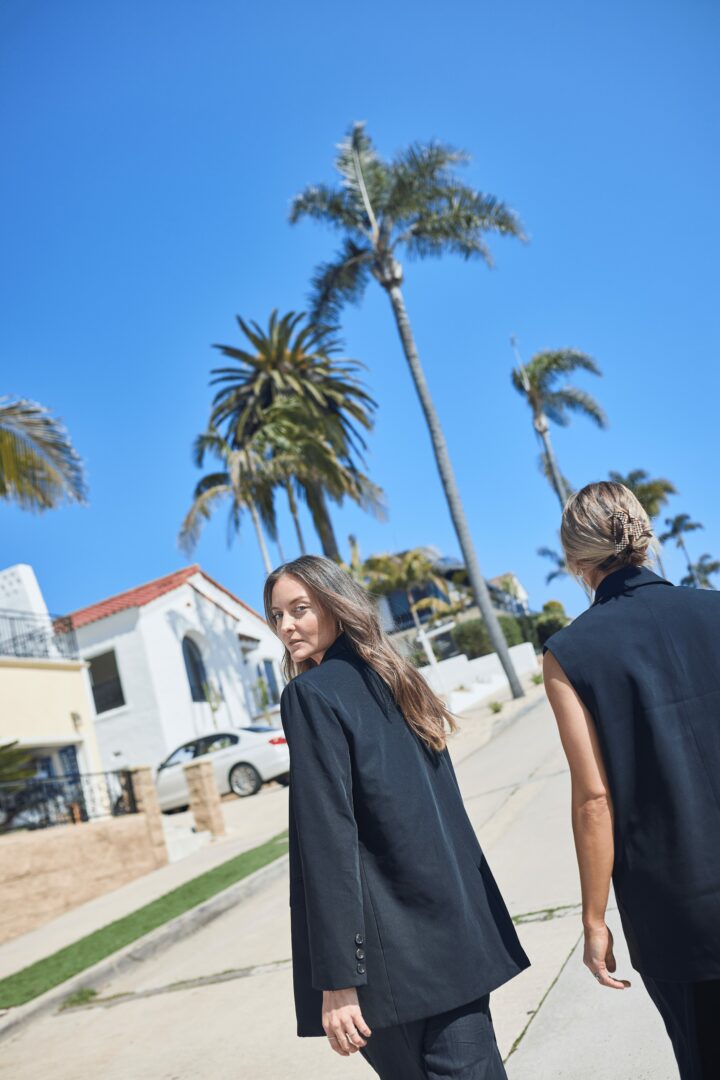
Image Credits
Rasheed Ingram
so if you or someone you know deserves recognition please let us know here.

